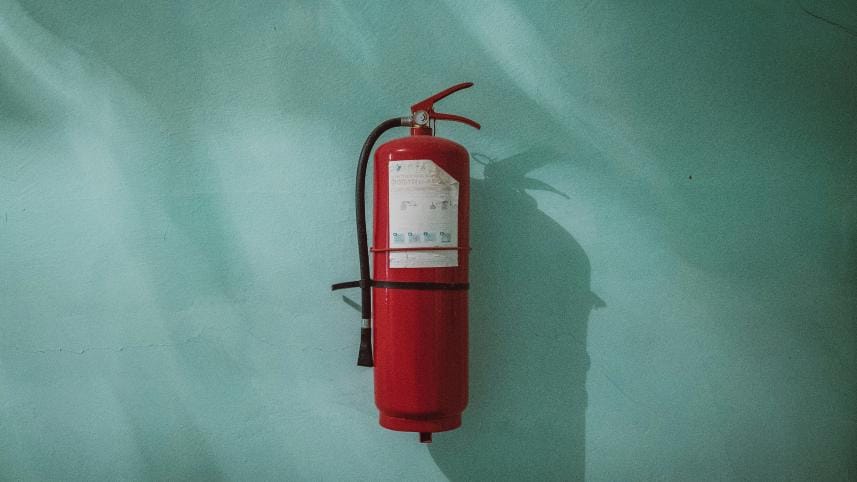Can the overly enthusiastic drives stop restaurant fires?

The Bailey Road fire, which killed at least 46 people on the last night of February, once again points to the massive flaws in the safety system of businesses in the sprawling Dhaka city and highlights the urgency to ramp up monitoring and interventions to avoid preventable deaths.
However, the way several government agencies have been going after restaurants indicates their reactive attitude instead of a proactive one. Their actions demonstrated that they did not know whether these establishments had created fire risks for the public or they had just unearthed that many of the restaurants were running without proper approvals.
However, is that the case? Not at all. These restaurants have been operating right under the nose of the authorities for years. These places were frequented by customers, who went there to taste various dishes and spend quality time with their loving family members.
Foodies may claim that they were unaware of the risks but the government can't do the same. Can the officials of the government agencies tasked with ensuring the implementation of building codes or fire safety evade their responsibility just by saying that they did not visit any of the places ever or they did not know about the risks posed by restaurants?
How could these restaurants, however, start their operations without ensuring fire safety?
It seems that the Rajdhani Unnayan Kartripakkha (Rajuk), the public agency responsible for coordinating urban development in Dhaka, has suddenly woken up and found out the violations of laws in the restaurant business.
The Fire Service and Civil Defense, the Dhaka South City Corporation and the Dhaka North City Corporation also jumped into action. Even the police are raiding restaurants.
They are demolishing restaurants and arresting owners and employees. But the point is that the way authorities are going after restaurants is not the appropriate approach to creating awareness and guaranteeing safety.
Besides, the closures of some restaurants are hitting the business and will discourage entrepreneurs from making a foray into the flourishing sector. Some people will also lose jobs or new employment opportunities will not be generated.
Ultimately, these overly enthusiastic raids and arrests will not be supportive of the sector.
Previous experience shows that such raids and monitoring activities last for a few days. And once the public outcry over the fire incident fades into the background as time goes by, such efforts lose their speed until the next incident strikes.
This is how we allowed the fires at Nimtoli, FR Tower, Bangabazar, New Super Market, Moghbazar and Churihatta to take place.
Rather, the government should make it costlier so that entrepreneurs can't think of cutting corners and launching a business without putting in place proper safety standards. Continuous monitoring of compliance is also vital.
After the fire in Churihatta in 2019, a technical committee was formed and it visited around 3,000 buildings and recommended some measures in its report.
One of them was to extend the regular monitoring of the Rajuk. It also recommended making a detailed engineering assessment of the buildings of Dhaka city through a third party.
However, the recommendations have not been implemented yet. Thus, compliance has remained largely overlooked, putting people's lives at risk.




 For all latest news, follow The Daily Star's Google News channel.
For all latest news, follow The Daily Star's Google News channel.
Comments